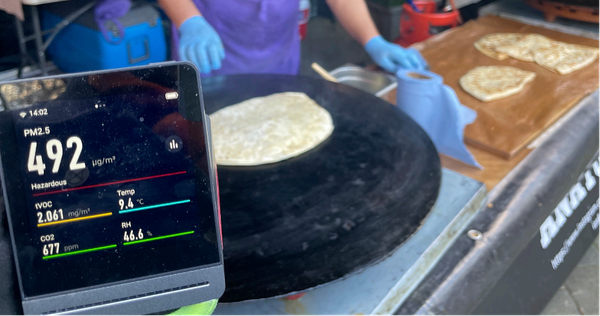The ugly truth about British colonialism lies in the Indian Ocean
The announcement of the Chagos Islands hand-over to Mauritius couldn’t come soon enough.
The reader, living in the Commonwealth age, might be surprised by the revelation that this country, recent agreement notwithstanding, still has a colony. The Chagos Archipelago was acquired by the British government from the then-colony of Mauritius in 1965 for £3 million, and declared the British Indian Ocean Territory (BIOT); but on 3rd October – almost 60 years later – the UK declared that it would transfer sovereignty back to the Mauritian government. While the distant memory of the Iraq War might lead one to believe that the UK has never lost the imperialist zeal that made and sustained the Empire in centuries past, by the 1980s nearly every colony had broken free. That the Chagos Islands has not followed suit in the four decades since, at first face seems strange. On the other hand, considering the dearth, absence even, of education in schools about the nation’s role in colonial-era atrocities, “surprise” is perhaps too strong a description.
What is certainly far more shocking is the thoughtless attitude that the country displayed to Chagossians; moreso the fact that successive governments have all shown an unchanging level of contempt to the native islanders as the latter protest this injustice. In an effort to depopulate the region to build a joint military base on the largest island Diego Garcia, for American and its own use, the British government forcibly displaced 1,500 to 1,750 inhabitants – referred to as “Tarzans or Men Fridays” in a 1966 diplomatic cable by D. A. Greenhill – between 1967 and 1973. Officials went as far as to intimidate “the remaining population to leave, including by killing their dogs,” according to a report by Human Rights Watch in 2023.
The UK has since barred anyone, including ex-residents, from entry – even going as far as to declare the region a Marine Protected Area (MPA) in 2010. During an arbitral tribunal held in 2015 to discuss MPA establishment, the British side reasoned that “the region is still pristine as a result of non-settlement, and should remain one of the very few such rare areas in the world”; yet this makes the staggering assumption that the Ilois way of life would pose a major danger to marine life. On the contrary, conservationists argue that the presence of – and active dialogue with – indigenous people is absolutely necessary for projects like this to be effective: in an interview with The Times, marine ecologist Dr Mark Spalding noted that “the world of conservation is littered with failures where the people involved were not consulted” and that if Chagossians are later allowed to resettle, “Why should they want to co-operate with the conservation groups running roughshod over them?” All this indicates that the unspoken intent of these proceedings is to further quash any chances of resettlement.
The International Court of Justice (ICJ), the highest court in the UN, advised in February 2019 that the “the United Kingdom is under an obligation to bring to an end its administration of the Chagos Archipelago as rapidly as possible,” describing its current sovereignty as “a wrongful act entailing the international responsibility of that State”. A UN General Assembly vote in May on the back of these conclusions ended 116 to 6, overwhelmingly in favour of demanding withdrawal from the archipelago within six months. These went ignored until November 2022, when then-Foreign Secretary James Cleverly made a statement announcing that the “UK and Mauritius have decided to begin negotiations” on Chagos’s sovereignty – then last week lambasted the Prime Minister over the result of what he had started.
Indeed, from both within and without the Conservative party, the 3rd October statement has met some opprobrium, with some fearing that Chagos could set a precedent that could see the Falkland Islands and Gibraltar, both disputed territories, fall out of British control as well. Others argue that the arrangement could give China intelligence on the clandestine activity of the Diego Garcia base, pointing to the high volume of Mauritian imports coming from the superpower.
But the biggest problem with this, highlighted by Chagossians themselves, is that two years of negotiations have in effect changed nothing. The shift in power doesn’t change the fact that their land is still under the authority of another state. The 1,000 or so inhabitants expelled from Diego Garcia, their children, and their grandchildren will never see home again in their lifetimes – the UK said in the joint statement that it would retain the base for a minimum of 99 years. One could even doubt that Mauritius will be willing to put the money where their mouth is and commit to resettlement, given that in the two years of talks the Ilois were not consulted even once. A sad conclusion, perhaps, but in a tale of colonial brutality and continued disregard, one can’t really be too surprised.










